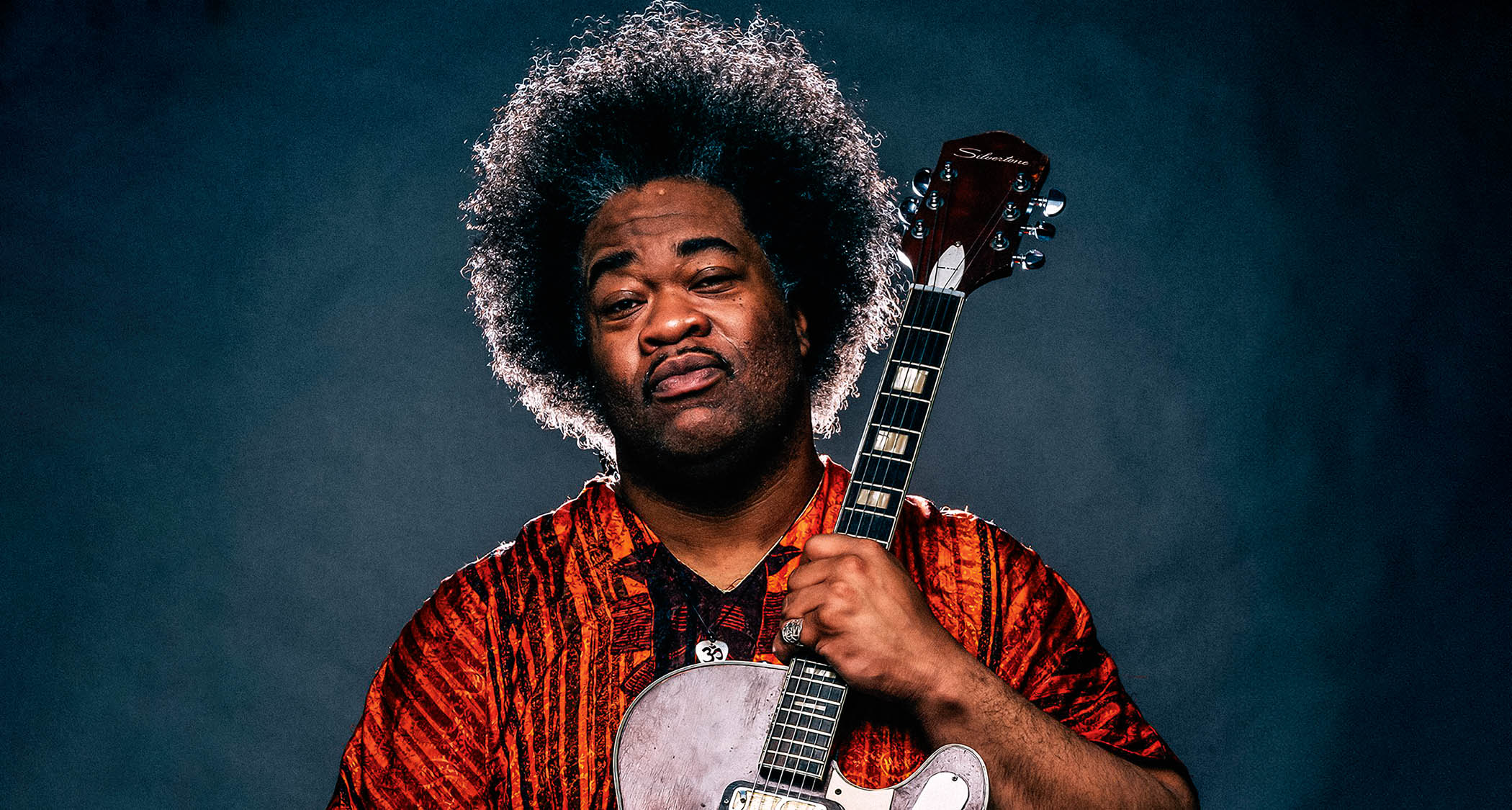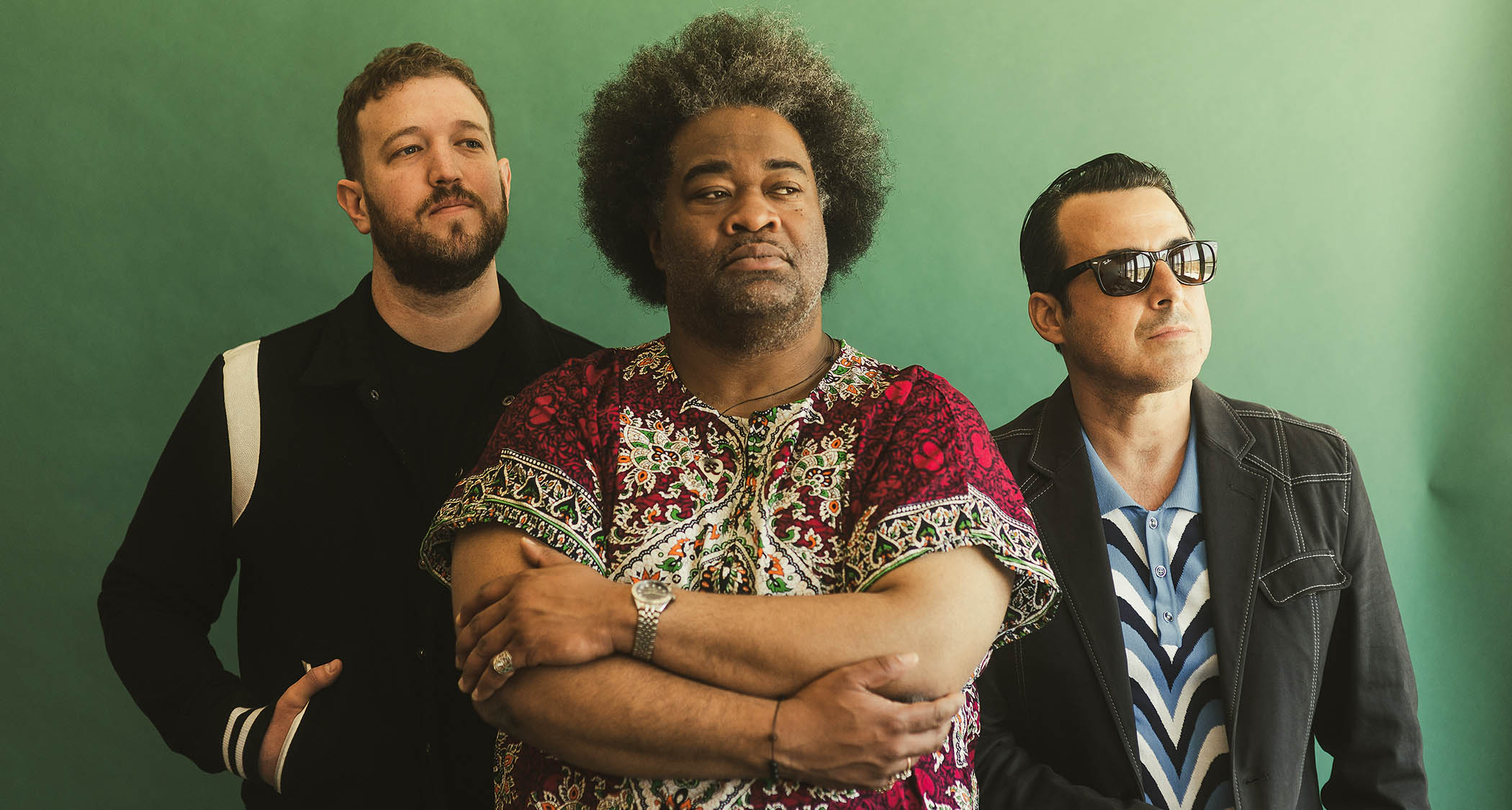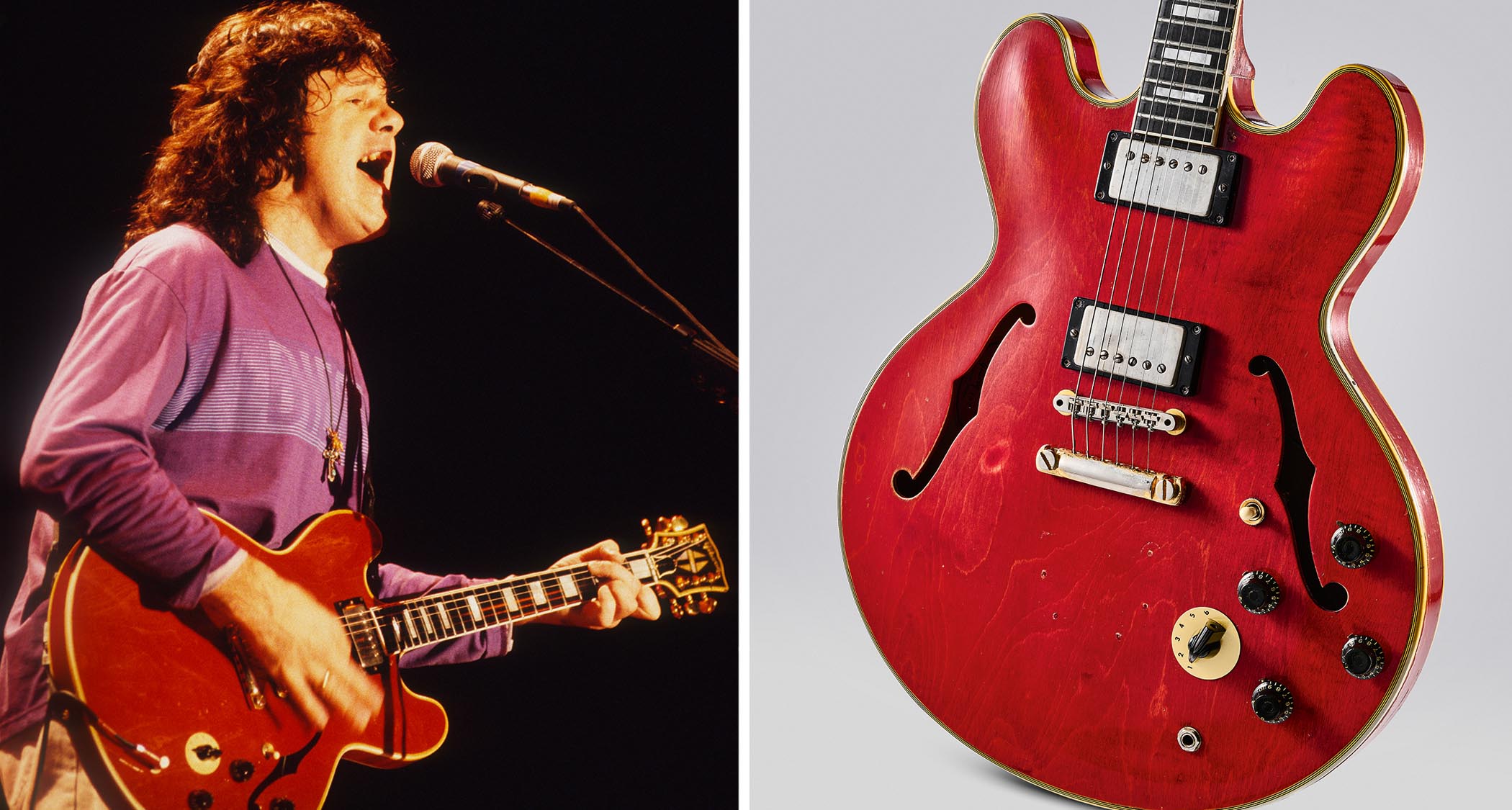“The greatest advice I ever heard was from James Jamerson: ‘If you don’t feel it, don’t play it.’ I have that written on my guitar case as a reminder”: Parlor Greens’ Jimmy James on his biggest musical lessons, and why, like Hendrix, he's all about rhythm
“Driving the locomotive” in new supergroup Parlor Greens might be the Seattle soul man’s finest hour yet, and it finds him happiest when holding it down on rhythm guitar

Pull up a barstool in any Seattle club and every night you’ll see a different incarnation of Jimmy "Scratch" James step onto the boards.
Renowned for his sweet right hand and habit of shedding his skin, the benevolent soul man’s rhythm work has driven outfits spanning from the True Loves to the Delvon Lamarr Organ Trio.
But as James admits, when his phone lit up with an invite to join GA-20 drummer Tim Carman and organ virtuoso Adam Scone in new power trio Parlor Greens, he “had no idea what was going to happen” on debut album, In Green/We Dream.
How did the Parlor Greens project start?
“I got a call from Tim and Terry Cole [Colemine Records label boss], saying, ‘Hey, we’re trying to do this thing.’ And I knew Adam because I’d recorded with him on [Scone Cash Players’] Brooklyn To Brooklin album.
“So I got off the flight in Ohio and we’re sat around talking at Terry’s place when all of a sudden Tim starts banging away on the drums. And it was like, ‘Okay, well, we’re fresh off the plane, might as well just start playing’. That’s how the song West Memphis came up – and we recorded it in 10 minutes.”
Did this album bring out different sides of your playing?
All the latest guitar news, interviews, lessons, reviews, deals and more, direct to your inbox!
“Yeah, it’s stuff we’ve always dreamed of playing. Like, I get to play shuffles, and we did a new version of My Sweet Lord, just working with the groove and seeing what happened. We didn’t overthink it. And that’s the best way to look at music – just go with the breeze.
“The greatest advice I ever heard was from the legendary Motown bassist James Jamerson: ‘If you don’t feel it, don’t play it.’ I have that written on my guitar case as a reminder.”
My sister, who was a drummer, would say, ‘Tempo is everything, stay in the pocket, stay out of everybody’s way!’
What are the pleasures of the organ/drums/guitar line-up?
“When you have organ and guitar, you’ve one additional chordal instrument versus guitar, bass and drums. There’s something else to hold the harmonics down, or the guitar can add a percussive element while the organ does something else. It’s about keeping your ears wide open, playing your part but not getting in the way.
“I had two great teachers, my late mother and my late sister. My mother was a singer and she would always tell me, ‘Emphasise, emphasise, emphasise! Emphasise the melody and the rhythm.’ And my sister, who was a drummer, would say, ‘Tempo is everything, stay in the pocket, stay out of everybody’s way!’”
What are your favourite guitar moments on In Green/We Dream?
“I love it when I get to just stay in the rhythm. There was another quote I heard from my hometown hero, Jimi Hendrix. I’m paraphrasing, but it was something like, ‘Lead is where you get it out, rhythm is where you get it on.’ So I loved playing the rhythm on My Sweet Lord while Adam wailed away on the bassline.
“Driving the rhythm on that, or a track like Parlor Strut, was like driving a locomotive. Once you start going down that track, it’s like, ‘Now we’re cooking.’ Lead guitar, it’s fine, but I love rhythm more than anything. Maybe it’s because I started off playing drums. I always wanted to play music that makes you dance.”
How much of an influence was Hendrix?
“My middle sister, she was the classic rock metalhead of the family, and I remember she had a Jimi Hendrix hits album on cassette. Purple Haze scared the bejesus out of me because at the end he’s using the Octavia – I didn’t even know what that was.
“At the time, I thought Hendrix was a current artist. I asked my sister, ‘Where can I go see him?’ My sister had to break it to me: ‘He passed away many long years ago’. What?! I was so upset.”
Who are the other guitarists that flavoured your approach?
“Steve Cropper. Jimmy Nolen, who played with James Brown. Mighty Joe Young. Curtis Mayfield. Binky Griptite and Tommy Brenneck from The Dap-Kings. Chuck Berry. Albert King. Freddie King. Nile Rodgers. Oh, the list is long. With Steve Cropper, I love watching the Stax-Volt tour they did in Europe [1967].
“Watching him with Booker T, Sam & Dave, Otis Redding… I’ve wished so many times I was born in the ’40s because then I could have been there. At school, I’d be like, ‘Check out this Wilson Pickett record!’ And my peers were, like, ‘Who? My grandfather likes that.’ ‘Nah, it’s a great record!’ I was the kid with the Walkman, listening to all those songs until the batteries ran out and the pitch went [makes slow-motion burble].”
What were your go-to guitars and amps for In Green/We Dream?
“Just my 1964 Silvertone semi-hollow, going straight into a 1960s Ampeg Gemini II G-15. I’m not knocking pedals – whatever excites people – but with the Ampeg, I’d just crank it if need be and see what happens. Sometimes the tubes don’t last too long, but that’s the nature of the beast. I might have used my Strat, which is actually a 1995 Squier, on one song, too.”

What’s your history with that 1964 Silvertone guitar?
“I didn’t really know it was a 1964 when I got it, but I was playing a show with The Dap-Kings and Tommy Brenneck looked in the f-holes and said, ‘Oh, it’s a 1964.’ I’ve been told that guitar was found in a garbage can, on its way to the dump. I kept looking at it, thinking, ‘Can I afford it? But then I thought, ‘Screw it, you live once.’ Here’s how I look at it: a guitar has to be part of your anatomy. It has to be your voice when you can’t speak yourself. That Silvertone fits who I am.”
Your Squier looks well-worn…
“Sometimes, when I play that Strat, people tell me, ‘Your neckboard is so dirty.’ And I’ll tell them, ‘Hey, in the words of the great Jamerson, the dirt keeps the funk.’ Of course, I change the strings – when I break ’em. I remember once breaking four strings on that Strat at one time!”
You recorded with a Tascam 388 – what’s the appeal?
“Terry likes that grit and I’m with him on that. I grew up on records and tapes. Like, I remember hearing Gladys Knight & The Pips’ I Heard It Through The Grapevine on vinyl. When I heard it on CD, I was like, ‘Man, the bassline doesn’t pop as much.’ So Terry recording this album to tape just made it more crunchy and the notes pop out a certain way. It’s not just level. There’s peaks and valleys, y’know?”
These are hard times. How do you want this music to make people feel?
“The great thing about music is it can make you forget how bad your day was. Or a song can bring you back to a point in time. Even though my mother and sister aren’t here – and I miss them terribly – when I hear certain songs, I remember a moment and it makes me smile. Like, I hear I’ll Take You There by The Staple Singers and I remember my mom singing it out loud. Those memories will stay with me until the end.”
- In Green We Dream is out now via Colemine.
Henry Yates is a freelance journalist who has written about music for titles including The Guardian, Telegraph, NME, Classic Rock, Guitarist, Total Guitar and Metal Hammer. He is the author of Walter Trout's official biography, Rescued From Reality, a talking head on Times Radio and an interviewer who has spoken to Brian May, Jimmy Page, Ozzy Osbourne, Ronnie Wood, Dave Grohl and many more. As a guitarist with three decades' experience, he mostly plays a Fender Telecaster and Gibson Les Paul.
![Parlor Greens - West Memphis [OFFICIAL AUDIO] - YouTube](https://img.youtube.com/vi/94hmUzliko8/maxresdefault.jpg)
![Parlor Greens - In Green We Dream [OFFICIAL AUDIO] - YouTube](https://img.youtube.com/vi/jCOqGYyBimU/maxresdefault.jpg)



